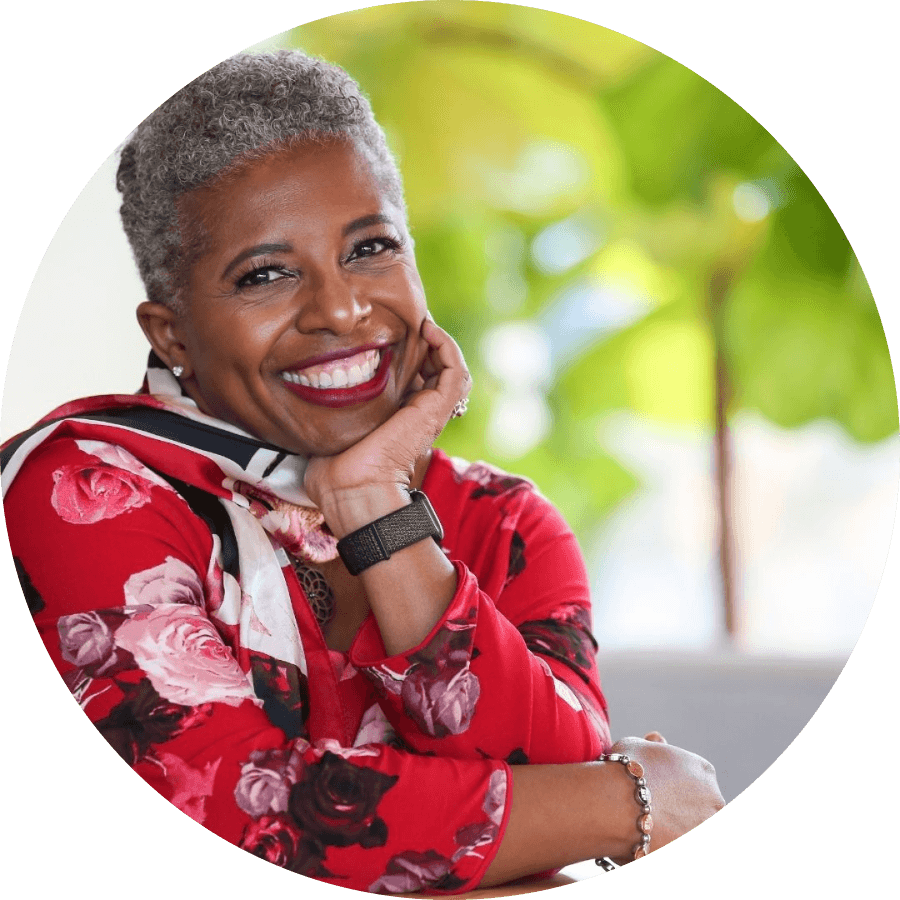This website will offer limited functionality in this browser. We only support the recent versions of major browsers like Chrome, Firefox, Safari, and Edge.
WELLNESS PLANS
Feel Better With a Personalized Action Plan
All too often, women’s health symptoms are dismissed or chalked up to “part of being a woman.” Women have had to jump through hoops to get help – waiting months to be seen and properly diagnosed.
That ends now.
Rosy’s Wellness Plans are created by doctors, psychologists, and certified coaches to address any issues that are bothering you and help you take steps toward better health.
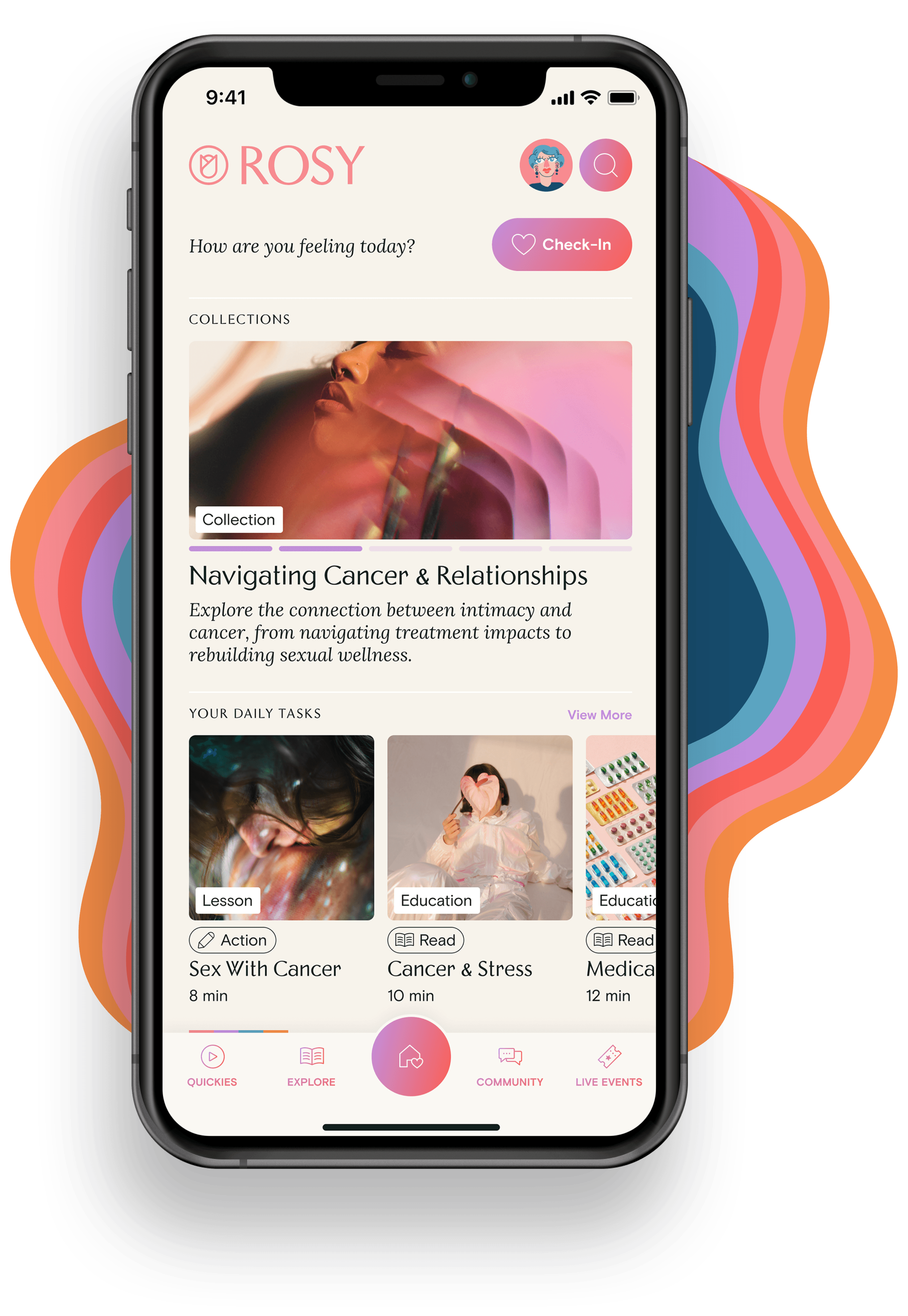
Take Back Control And Know How To Move Forward
Understand your body and what causes certain symptoms so you can improve your overall well-being.
You’ll work towards your health goals each day using tools from medical and mental health experts that are scientifically proven to improve health outcomes, including comprehensive education, treatment, and behavioral interventions.
How It Works
STEP 1
Answer Questions About Your Health
First, you’ll take around 5 minutes to tell us about your health history, preferences, and goals so we can customize your plan (and your entire Rosy experience). Not to worry – the Wellness Quiz is completely private and confidential, just like a doctor’s visit.
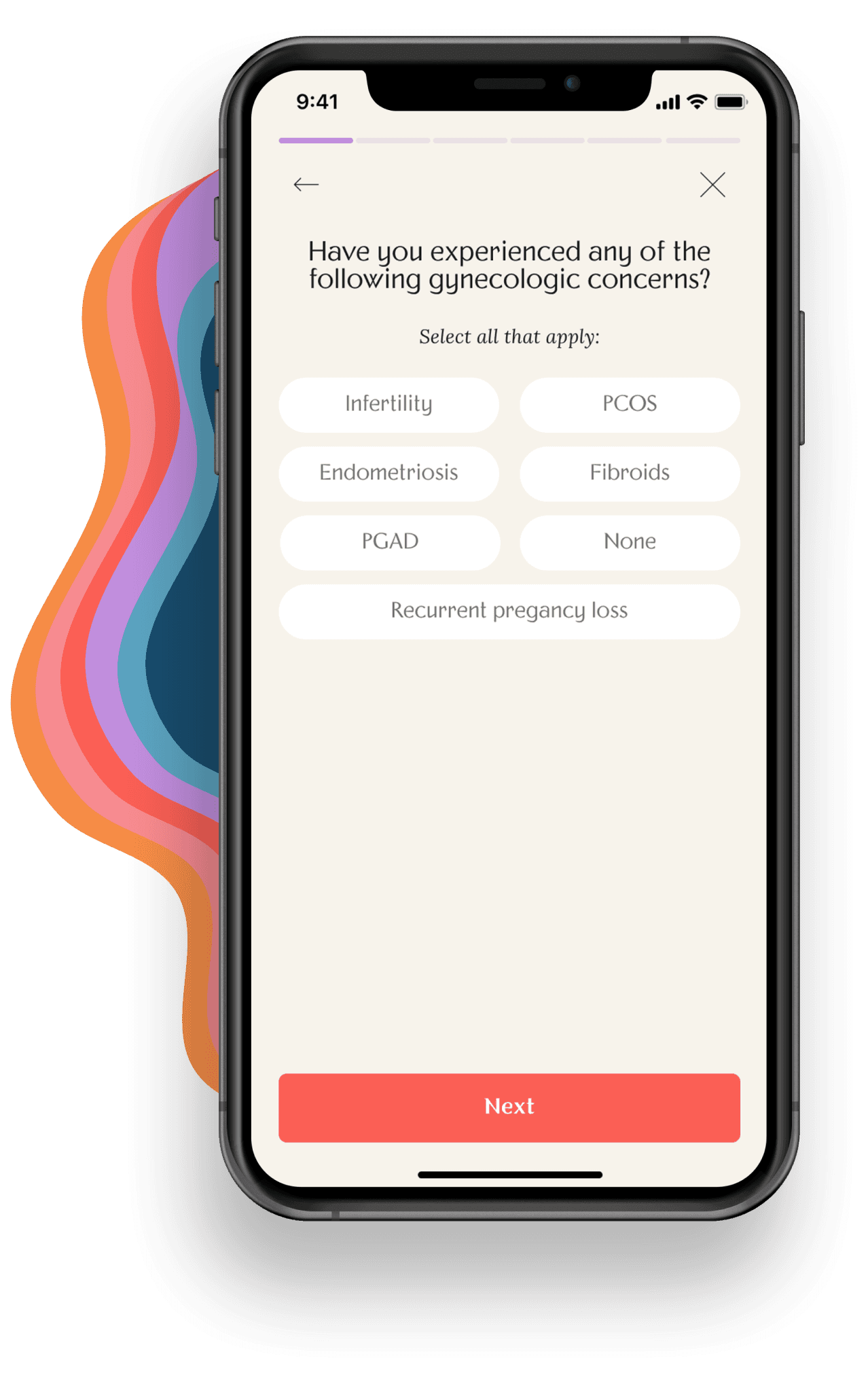
STEP 2
Explore Your Comprehensive Plan
Your health is multifaceted and unique, as is your personalized Wellness Plan. Struggling with migraines? Don’t plan on having kids? Worried about perimenopause? Rosy will take it all into account and treat your health as a whole instead of addressing individual symptoms.
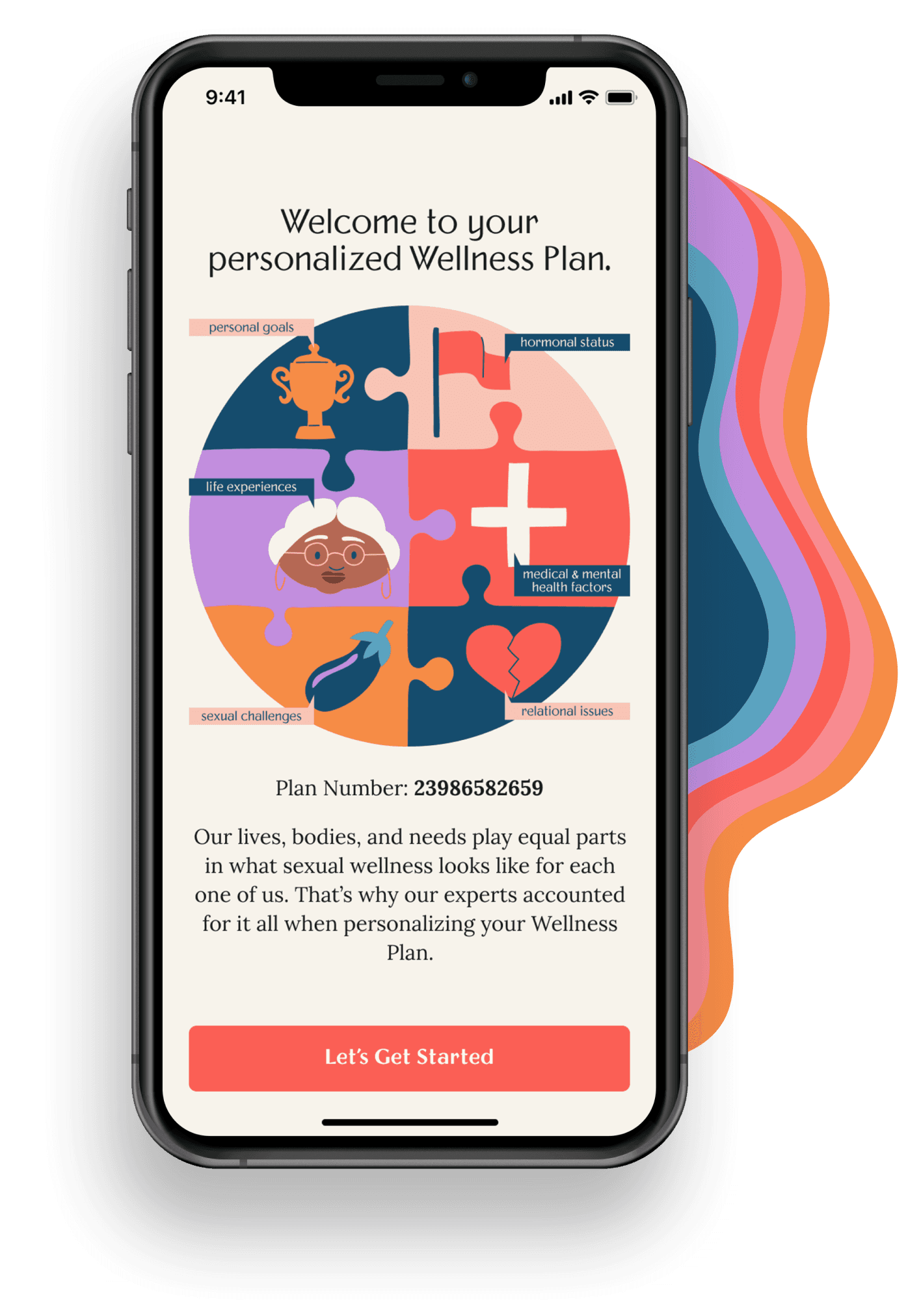
STEP 3
Improve How You Feel With Science-Backed Tools
Learn what you can do in your everyday life instead of (or in addition to) medication to improve conditions like migraines, endometriosis, menopause, and more. You’ll discover proven methods to alleviate unpleasant symptoms, plus cognitive behavioral therapy exercises to support a healthier lifestyle. So you can feel your best day in and out.
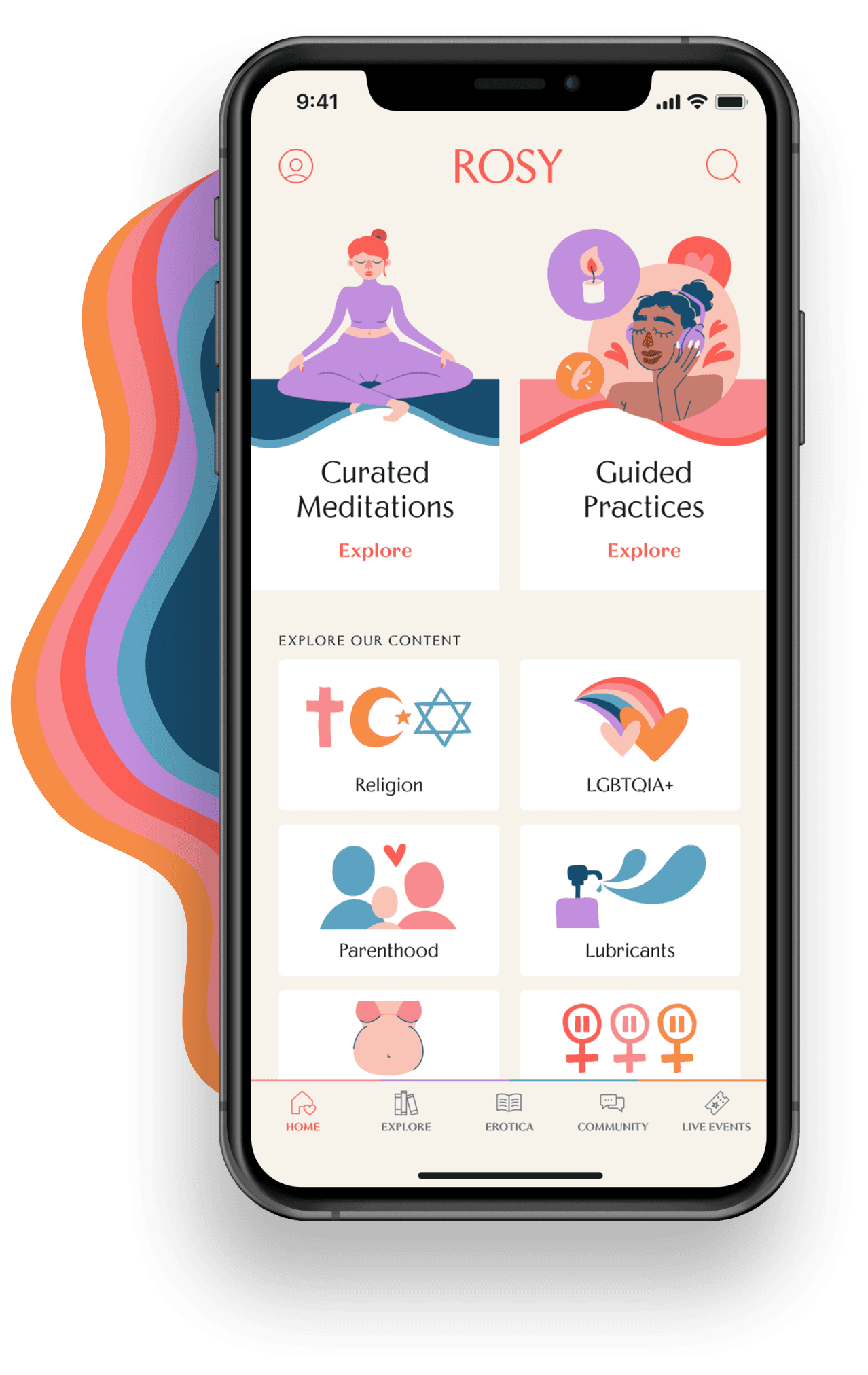
STEP 4
Reach Your Goals Day By Day
Daily check-ins, assignments, and reminders help keep you accountable to your goals so you never stop putting your health first. You’ll also get recommendations for follow-up and tips to prepare for in-person doctor’s visits – so you can become an advocate for yourself at the office and maximize your time with your provider.

See What Else Is Inside
Access Exclusive Content
Develop a deeper understanding of your body and health with bonus audio content and guided mindfulness sessions.
Get Custom Recommendations
Your tailored plan includes symptom-specific medical recommendations plus lifestyle changes to help you reach your goals.
Reflect & Get Unstuck
Identify unhelpful thought patterns with reflective journal prompts. Learn how to train your mind to see things differently.
Track Your Progress
With research-backed measurements of general wellness, you can track your scores over time and celebrate how far you’ve come.
Meet The Women’s Healthcare Professions Behind Your Wellness Plan
Lyndsey Harper, MD
Lyndsey Harper, MD is a board certified obstetrician-gynecologist and the Founder and CEO of Rosy. With easily accessible, medically verified information, research-backed solutions, and help from a supportive community, Dr. Harper and Rosy are on a mission to bridge the gap between women and healthcare providers and elevate the health of all women. Dr. Harper completed Ob/Gyn residency in 2011 at Baylor Scott & White Health in Dallas, Texas. She is Associate Professor of Obstetrics and Gynecology for Texas A&M College of Medicine, a Fellow of The American Congress of Obstetricians and Gynecologists, and a Fellow of the International Society for the Study of Women’s Sexual Health.

Anna Thomas, PhD
Dr. Anna Thomas is a Licensed Psychologist who provides individual and couples’ therapy to older adolescents and adults. She works with patients struggling with anxiety, mood, stress and life transitions, in addition to people coping with medical issues such as cancer, HIV, women’s health concerns, HIV, irritable bowel disease, diabetes, chronic pain and burn injury. She has received specialized training in sexuality and working with perinatal and LGBT issues. She also holds a certificate in the specialty of Maternal Mental Health from Postpartum Support International. Dr. Thomas completed her doctoral training and APA-accredited internship at the University of Texas Southwestern Medical Center, and has a master’s degree in Psychology from Hunter College in New York City.

Sonia Wright, MD
Dr. Wright is a board-certified radiologist, a sexual counselor and a certified life coach. She is on a mission to help women embrace their sexuality as well as end the emotional pain and isolation associated with sexual difficulties so they can experience pleasurable sexual intimacy. Her super power is putting people at ease while discussing sensitive issues related to sex. She tackles the hard issues by normalizing the situation and sharing helpful information, while coaching from a caring, respectful and humorous perspective. She received her education from Stanford University, the University of California San Francisco School of Medicine, the Mayo Clinic and the University of Michigan. She completed my life coach training from Brooke Castillo’s The Life Coach School and from Learning Journeys.
